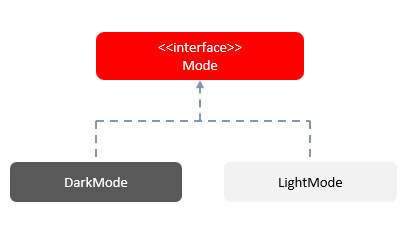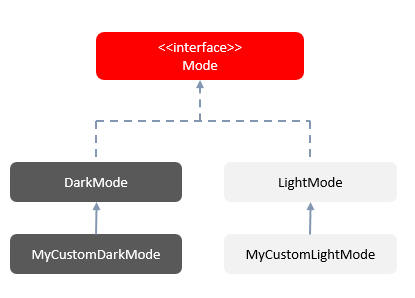Kotlin | Delegation Design Pattern
 Inheritance is a common solution for code reusability. Extending class implementation will allow subclasses to inherit implemented members e.g. functions and properties. Delegation design pattern, however, is an alternative solution to inheritance. Delegation pattern uses object composition to achieve code reusability. Kotlin provides native support for this pattern where a class can delegate implementation to a specified object. In this post we will explain delegation design pattern and see it in action usign Kotlin
Inheritance is a common solution for code reusability. Extending class implementation will allow subclasses to inherit implemented members e.g. functions and properties. Delegation design pattern, however, is an alternative solution to inheritance. Delegation pattern uses object composition to achieve code reusability. Kotlin provides native support for this pattern where a class can delegate implementation to a specified object. In this post we will explain delegation design pattern and see it in action usign Kotlin
Overview
- We have an interface
Modewhich has one functiondisplay()and one String propertycolor:String. - We initially have two classes implementing
Modeinterface namelyDarkModeandLightMode.

interface Mode{
val color:String
fun display()
}
class DarkMode(override val color:String) : Mode{
override fun display(){
println("Displayig dark mode...")
}
}
class LightMode(override val color:String) : Mode {
override fun display() {
println("Displayig light mode...")
}
}
- We wanted to derive a custom mode from each implemented mode. Each custom mode reuse
display()function from its parent mode. - We can achieve this goal using one of the following solutions:
- Extending initially implemented modes using inheritance.
- Delegating implementation using delegation pattern.
1 | Extending Modes Using Inheritance
- If we want to extend existing dark and light modes, the trivial solution is inheritance.
- Inheritance allow subclasses to reuse the implementation from the extended classes
DarkMode&LightMode. - So, we will create two new subclasses
MyCustomDarkMode&MyCustomLightModeeach extending one of the implemented modes.

interface Mode{
val color:String
fun display()
}
open class DarkMode(override val color:String) : Mode{
override fun display(){
println("Dark Mode..."+color)
}
}
open class LightMode(override val color:String) : Mode {
override fun display() {
println("Light Mode..."+color)
}
}
class MyCustomDarkMode(override val color:String): DarkMode(color)
class MyCustomLightMode(override val color:String): LightMode(color)
fun main() {
MyCustomDarkMode("CUSTOM_DARK_BLUE").display()
}
- Now, each new custom mode can reuse the implementation of its parent mode.
- However, notice that in Kotlin parent modes should be
open classin order to be extendable. - Also, a drawback of inheritance is that we need to create a separate custom mode for each parent mode.
2 | Using Delegation Pattern
“Delegation pattern is an object-oriented design pattern that allows object composition to achieve the same code reuse as inheritance.”
- Using delegation, we can achieve code reusability using object composition.
- We can create one custom mode that reuses
display()function of each initial mode. - The custom mode class will implement the interface
Modeas well as taking a parameter of typeModein its constructor.

interface Mode{
val color:String
fun display()
}
class DarkMode(override val color:String) : Mode{
override fun display(){
println("Dark Mode..."+color)
}
}
class LightMode(override val color:String) : Mode {
override fun display() {
println("Light Mode..."+color)
}
}
class MyCustomMode(val mode: Mode): Mode{
override val color:String = mode.color
override fun display() {
mode.display()
}
}
- Now, the custom mode can reuse
display()function of both modesDarkMode&LightMode.
fun main() {
MyCustomMode(DarkMode("CUSTOM_DARK_GRAY")).display()
MyCustomMode(LightMode("CUSTOM_LIGHT_GRAY")).display()
}
/* output:
Dark Mode...CUSTOM_DARK_GRAY
Light Mode...CUSTOM_LIGHT_GRAY
*/
Kotlin Native Support for Delegation Pattern
- Kotlin natively support delegation pattern.
- Kotlin provides
bykeyword to specify the delegate object which our custom mode will be delegating to. - We can achieve the same result of the code above using
bykeyword.
class MyCustomMode(val mode: Mode): Mode by mode
fun main() {
MyCustomMode(DarkMode("CUSTOM_DARK_GRAY")).display()
MyCustomMode(LightMode("CUSTOM_LIGHT_GRAY")).display()
}
/* output:
Dark Mode...CUSTOM_DARK_GRAY
Light Mode...CUSTOM_LIGHT_GRAY
*/